CRN Exclusive: HP Cloud GM On Helion's Public Cloud Exit, AWS, EMC-VMware's New Cloud Venture And Unlocking The Power Of Partners

HP Cloud GM Speaks Publicly For First Time
Hewlett-Packard Cloud Business Unit General Manager Bill Hilf spoke with CRN Friday about the decision to shutter the HP Helion Public Cloud business effective Jan. 31, 2016, HP's Amazon Web Services play, the new EMC-VMware 50-50 cloud business and other issues.
Hilf told CRN the decision to shutter Helion Public cloud was based heavily on its strategy to grow the business hand-in-hand with solution provider and service provider partners and the demand from customers for HP to support hybrid cloud computing. He also said HP will be focusing its resources on its managed and virtual private cloud offerings.
Here's an edited transcript of the interview.

Why did HP make the decision to kill the HP Helion Public Cloud offering?
Fundamentally, a huge part of the decision to do what we just did was driven by the growth that we see together with partners.
The way we got to this is we started really looking at overall market dynamics and the movement in the market particularly where enterprises were going. Customer after customer were telling us, 'Listen, we will have a mix of different environments from traditional, in some cases things that are not even virtualized, basic virtualization, some private clouds, outsourced things, we will use public cloud. We will use a combination of all these things like tools in a toolbox.'
That has been substantiated. Actually just this week there was some data that got published about the growth of hybrid cloud spending near 30 percent year-over-year growth. The IT spend for hybrid cloud is greater than the growth rate of IT spend overall.
It is not so much just our opinion. It is really what is happening in the reality of the market, this emergence of hybrid cloud or multi-cloud. People using multiple types of cloud environments in the enterprise.
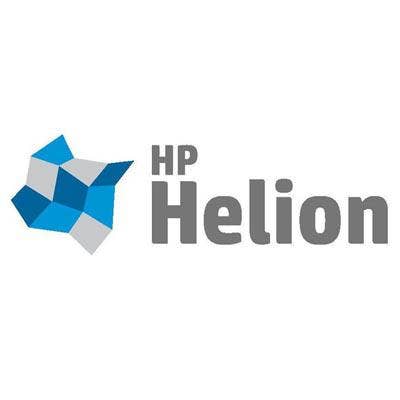
What were customers telling you about Helion Public Cloud?
It was sort of confusing to our customers because the demand [is in hybrid cloud]. They were telling us for the public cloud component of the portfolio they were really looking at AWS or Azure. In some regions they were looking at Baidu in China or a particular service provider in Spain or France as their public cloud option.
So we decided since we are investing in this hybrid space, we are building hybrid management tools. We are building HP Converged Infrastructure that is enabling these hybrid clouds. We are building a platform with Helion that allows people to build an app and have it run on any cloud environment.

What does the hybrid cloud opportunity look like for partners?
What we are doing is opening up the aperture so much wider for how we and our partners can participate in the overall hybrid cloud growth.
If we are able to say 'You can use OpenStack, VMware, Microsoft, Amazon, Baidu, your local service provider, they are all part of the kit that you are able to sell,' then they are able to harvest a lot more of that 30 percent [hybrid cloud spending] growth.
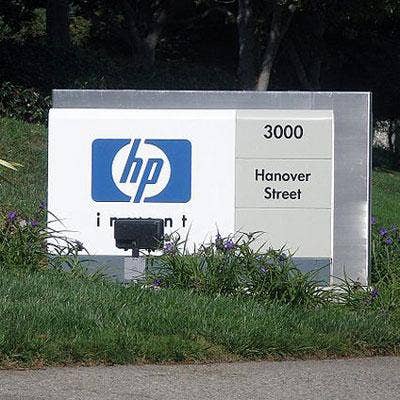
What does the hybrid managed and virtual cloud focus mean for HP partners?
It allows our partners to go in with an HP story that says from the machine, from the physical infrastructure, the server, storage, networking, all the way up, we can help address your needs through professional services to architect an application that runs on- and off-premise, maybe with Amazon, because we have Eucalyptus, which allows you to run Amazon apps on-premise. We are establishing these partnerships with Amazon and Microsoft, and they can help a customer go run an application between Azure and Office 365 in a Helion private cloud. They can go do a VMware thing running VMware inside our CloudSystem. The options are very wide now. In our heart, as you know, we are a partner company. That is our DNA. Our partners want a lot of choice when they go talk to customers. This really unlocks the potential for HP and its partners to really capture the vast majority of that 30 percent hybrid cloud spending growth.
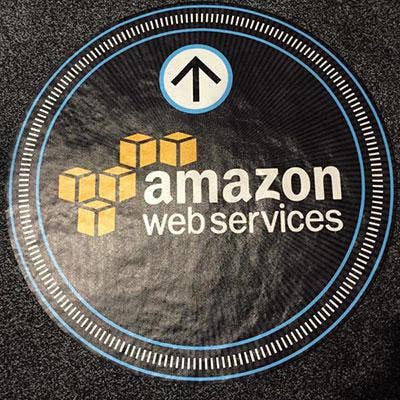
What ability will partners have to drive sales and profits with HP Helion managed and virtual cloud vs. Amazon Web Services?
For most midsized and large enterprises, if you were to look at their 2016 IT budget, a large majority of that budget is basically behind the firewall. Although often the media gets excited by the public cloud growth, IT spend is still heavily on what I would call classic infrastructure: storage, VDI, networking, compute. A lot of that goes to more traditional systems. If you look at the spend, only a fraction of it goes to the public cloud in a typical IT portfolio. The shape of that could change over time.
The second thing to look at from a partner point of view is margin: where are they going to see the greatest margin, the greatest return on their cycles to work with the customer. And often the challenge with a lot of the big public cloud is their own margins are razor-thin and therefore the opportunity for a partner to make margin off of in many cases services that are already very, very cheap can be challenging to really build a business around that sort of model.
For us, when we talk to partners we want partners to help specialize in areas like security, compliance or regulatory issues.

Can you give an example of how partners will play in this managed/virtual cloud market with HP Helion?
I was talking to a partner recently who focuses on health-care storage for New York City hospitals. They are a big storage provider there. They have a whole set of data privacy and HIPAA requirements that they are specializing in. We provide them with the physical infrastructure and the software with OpenStack that allows them to build storage-as-a-service and they host it for those hospitals. The hospitals still get the DropBox-like experience but it is a very secure, HIPAA-compliant, carefully managed data center specializing in health-care storage. That is how partners are taking these cloud tools we are building and turning them into very targeted solutions that are frankly differentiated from a generic public cloud platform. When we say we work with partners and service providers, that is the winning play. We build the tools for them and they provide either a managed or a hosted service, or the professional services to help a customer build out in a hybrid way.

What kind of growth are you seeing from partners becoming service providers and building their own cloud?
The largest growth we are seeing is through partners. One of our primary products we use with partners is CloudSystem. CloudSystem takes all of our different cloud components and brings them together and makes them really easy to use. It's sort of a factory installed virtual appliance, one of our converged infrastructure systems. It is basically a private cloud in a box. It has Helion OpenStack. It has our development platform, our management tools, our orchestration tools, all prebuilt in an easy to use solution. Even within the box it is a virtual appliance, very easy to deploy and manage.

What kind of growth rates are you seeing with CloudSystem?
CloudSystem is a multibillion-dollar, double-digit growth product line for us. It is very, very successful. It is our lead product. That is where we see a lot of growth with partners. They are taking CloudSystem and some of them are running it in a managed way. They will buy it from us and then they'll go run a hosted service with CloudSystem as the engine behind the scenes. In some cases they'll go deploy a CloudSystem in a customer's data center and help them install, configure and sometimes remotely manage it for a customer. That is where we are seeing most of the growth. Actually that product is growing even faster than the private cloud market. That is sort of the benchmark that I look at. Private cloud growth is growing at 17 percent to 18 percent, and we are growing double that in that particular product line. The vast majority of the way that we are growing that business is through partners.
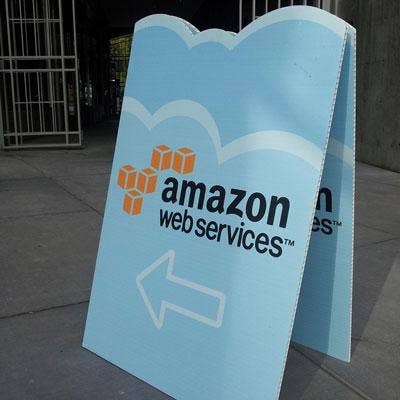
AWS just announced 80 percent growth with 25 percent gross margin for its most recent quarter. What is your reaction to that when partners are looking at public cloud growth vs. HP Helion?
AWS has built a fantastic offering. They really have. I wouldn't knock their innovation at all. I respect it in a huge way. The thing that partners should realize though is that the Amazon and public clouds are really oriented toward certain types of workloads. They are best for certain types of workloads. There are certain workloads that are not best suited to a public cloud. That has really been the reality that enterprises are dealing with. They are going to have a multi-cloud strategy. I don't talk to any enterprise -- and I have talked to a lot of them, particularly in the last week with all the news we are making -- and none of them are saying, 'Bill, we are going all to the public cloud.' And the inverse is true: None of them are saying, 'We are never going to the public cloud.' They are all saying they are going to use a mix of all of these.

What questions should partners be asking as they look at building their cloud services strategy?
There are a couple of questions I think they should ask. No. 1: how do they involve an AWS or an Azure into their hybrid toolkit so that they can have the skills to go in and help a customer through that. One way HP partners can benefit with us is we actually have the only asset in the market that can help a partner build an on-premise AWS-compliant system. That is what we have with Helion Eucalyptus. It is the only thing out there that does AWS API compatible, on premise. That is a big deal. Then a partner can go into a customer and say, 'Listen we can give you a solution so you can move that app back and forth between AWS and your own cloud environment, wherever you want that to be, just in case there is a concern about data or they have a security concern or they just want to have that insurance policy.
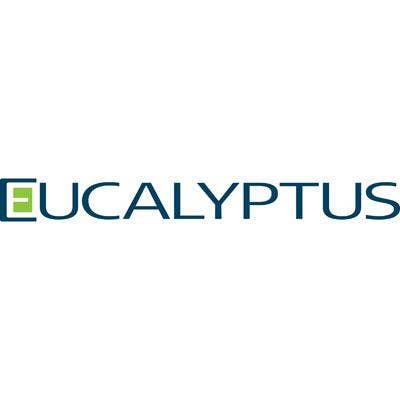
What kind of ways are customers using Eucalyptus?
I have a customer I talked to yesterday who uses Eucalyptus mostly as an insurance policy. He doesn't want to be locked in. It is sort of like the Apple model. He doesn't want to be like, 'How do I get all my music out of iTunes? 'He wants to make sure he has that flexibility.
One thing I would tell partners is to look closely at how do you add this to your overall hybrid toolkit and how you can leverage HP tools like Helion or Helion Eucalyptus in this case, or some of the things we are doing with Microsoft as well. How do they leverage those tools in a hybrid story for their customers?

What is the danger of the single platform approach to cloud?
The thing partners have to look at, and this is just being pragmatic, is: as these single platforms start to grow and start to dominate, where is the space for partners to capitalize on that and are they able to build a business as those platforms grow and grow and take on more and more functionality in more markets. Partners have to be very strategic and think through where they will be as that single platform grows. This is why I think enterprises are saying they will have a multi-cloud approach: they don't want to be stuck in any one single platform because you really are at that point tethered to a single vendor in that case. That flexibility is becoming more and more important as these cloud providers get bigger and bigger.

What are the services and margin opportunities going to market with HP Helion vs. an AWS?
When we look at growth for us we said the public clouds are pushing the price and the margins. They are squeezing it lower and lower as they battle each other for cost-per-gigabyte and cost per CPU, and that makes it very hard with where do you differentiate as a partner. Take the health-care partner I talked about: How do they differentiate their offering in that world where their customers can go up to a website and see how cheap storage is?'

What is your advice to partners as they look at the cloud services market?
Understand the deep requirements customers have and why they haven't moved all the way to a public cloud, and build in security through regulatory compliance --data sovereignty is a big one, particularly in Europe -- or they can go build an offering that gives their customers the best of both worlds: the on-demand capabilities of a public cloud, the speed, the consumption model, but with all of the security and the confidence and insurance and, in some cases, different types of SLAs that segment of the market really needs.

Compare the approach HP is taking with Helion to the new 50-50 EMC-VMware cloud services business with Virtustream?
I am still trying to decode with my secret decoder ring what that is going to be. There are two things that are happening. There are cloud providers that are becoming best-of-breed in their specific area. AWS is a good example of that. They are becoming really, really best-of-breed in the public cloud space. Then I think you have other providers saying we are going to try to take the entire picture on by ourselves. I would say IBM is trying to do that. It looks like this EMC-Virtustream-VMware combination is trying to do that. I think Oracle is trying to do that as well, saying we are going to go build a head-to-head competing environment for the entire hybrid stack.

What is the difference in partnering strategies between HP and those other players?
We are actually taking a very different approach. We are leaning into our partners, and those partners include Microsoft and Amazon. And so we are leaning into that, saying there is not going to be a single provider for all of these things. Just like no one buys all of their IT from one provider. It is sort of naive to think that way. So we are leaning in, which is opposite from a lot of these other guys. We are leaning into the partners here because we think the ecosystem is going to grow, not just one platform. So honestly when I look at the Oracle news, the news from IBM, the news from EMC and Dell, I look and say they are actually going the other way. They are leaning into themselves, trying to build the entire stack on their own, which of course is going to limit the opportunity for partners.
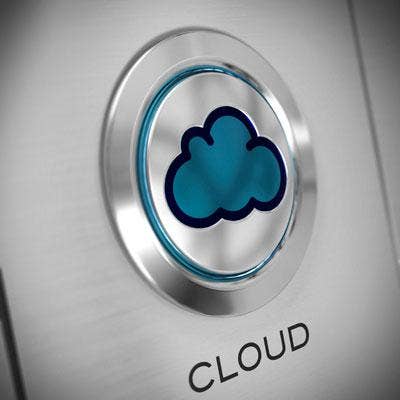
Is there a big difference between what IBM is doing with SoftLayer and EMC-VMware with Virtustream and the virtual managed approach you are taking?
Many of them are taking an approach that says, 'We are going to try to offer every single thing on our own.' IBM and Virtustream are not going to partner with the big third-party public clouds. They don't have an intention to do that because they are trying to build it on their own. What we are doing is listening to our customers. Our customers are telling us they actually want multiple types of clouds, not just from HP, not just from Oracle or just from Amazon. They are going to mix them together.

Ultimately what will be the impact on partners from the HP hybrid computing managed-virtual cloud approach?
Rather than put our heads in the sand, we said, 'Let's go and harvest all our partners together, including these big third-party public clouds that are growing at huge scale, and that way when our partners go in and talk to customers, the customer is going to say ’yes’ a lot more than they say ’no.’ The customer is going to say, ’I want to use VMware, Amazon, OpenStack, HP hardware.’ The partners' answer is going to be ’yes’ now instead of, ’It has to be just this [HP] platform because I am an HP partner.’ We wanted to open that up so our partners would have a lot more options than anyone else out there.